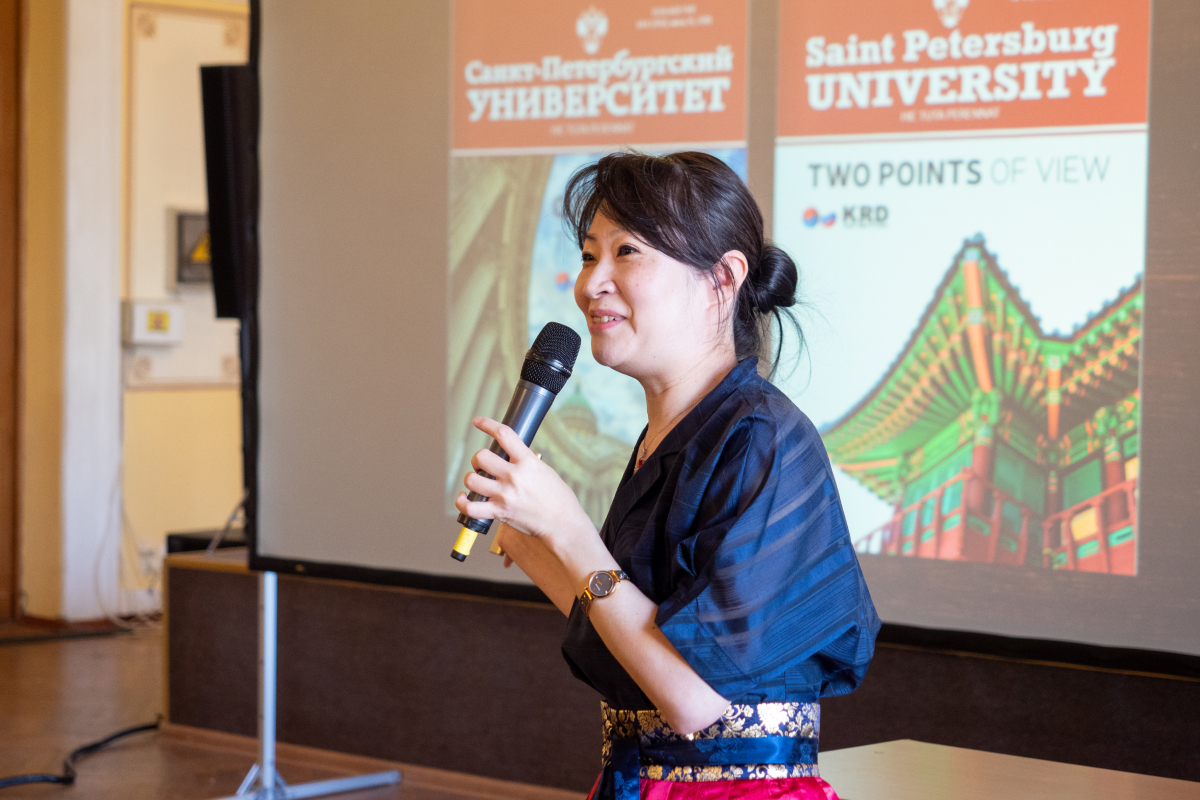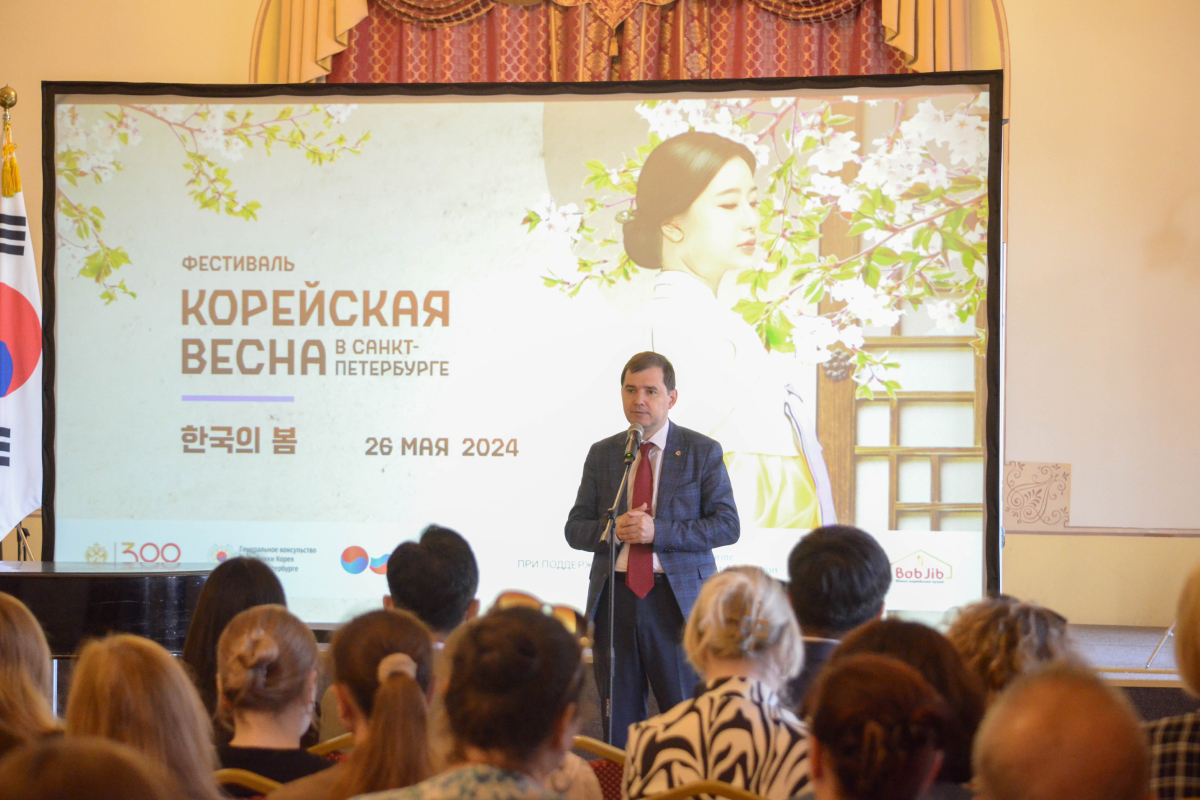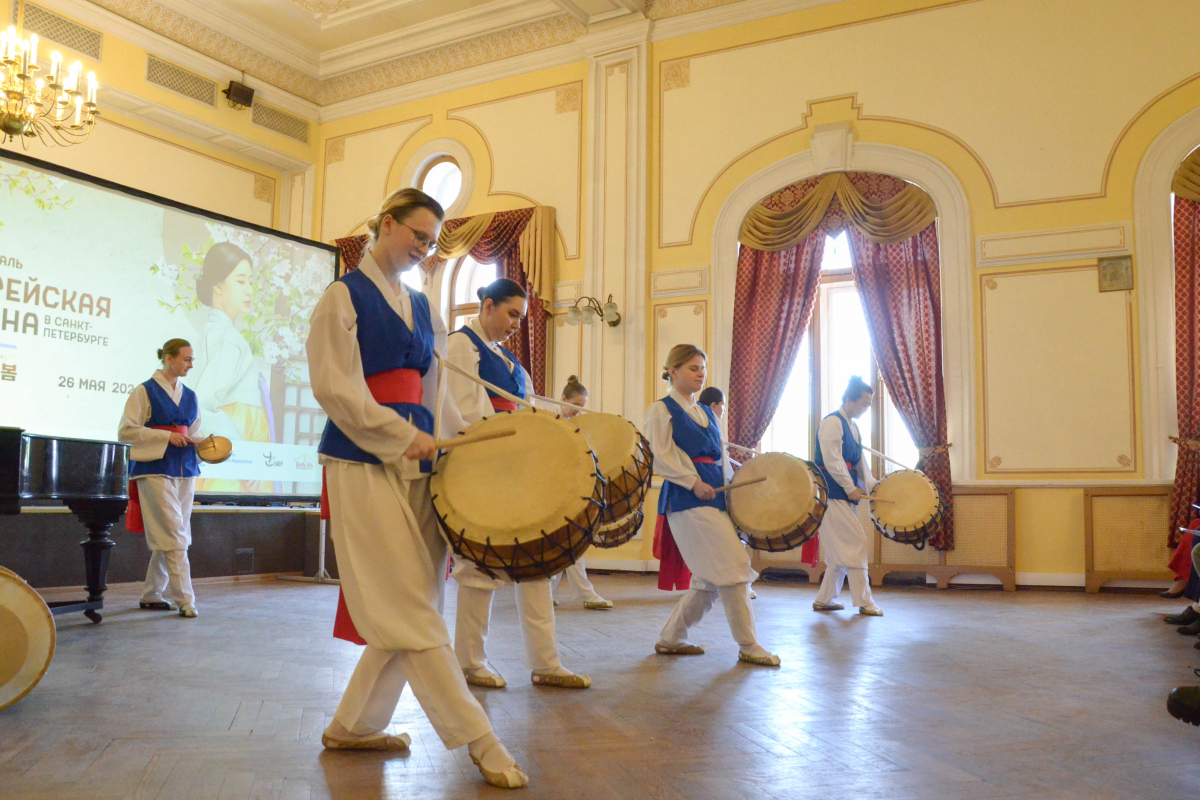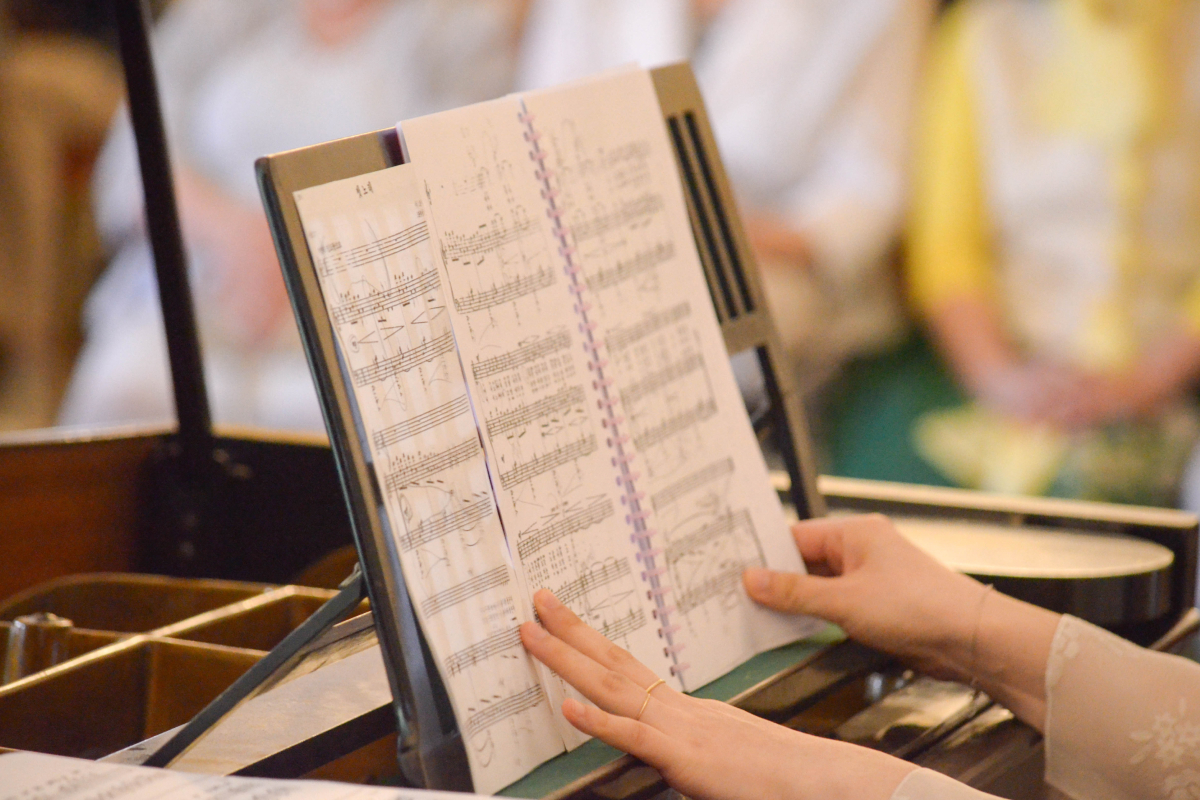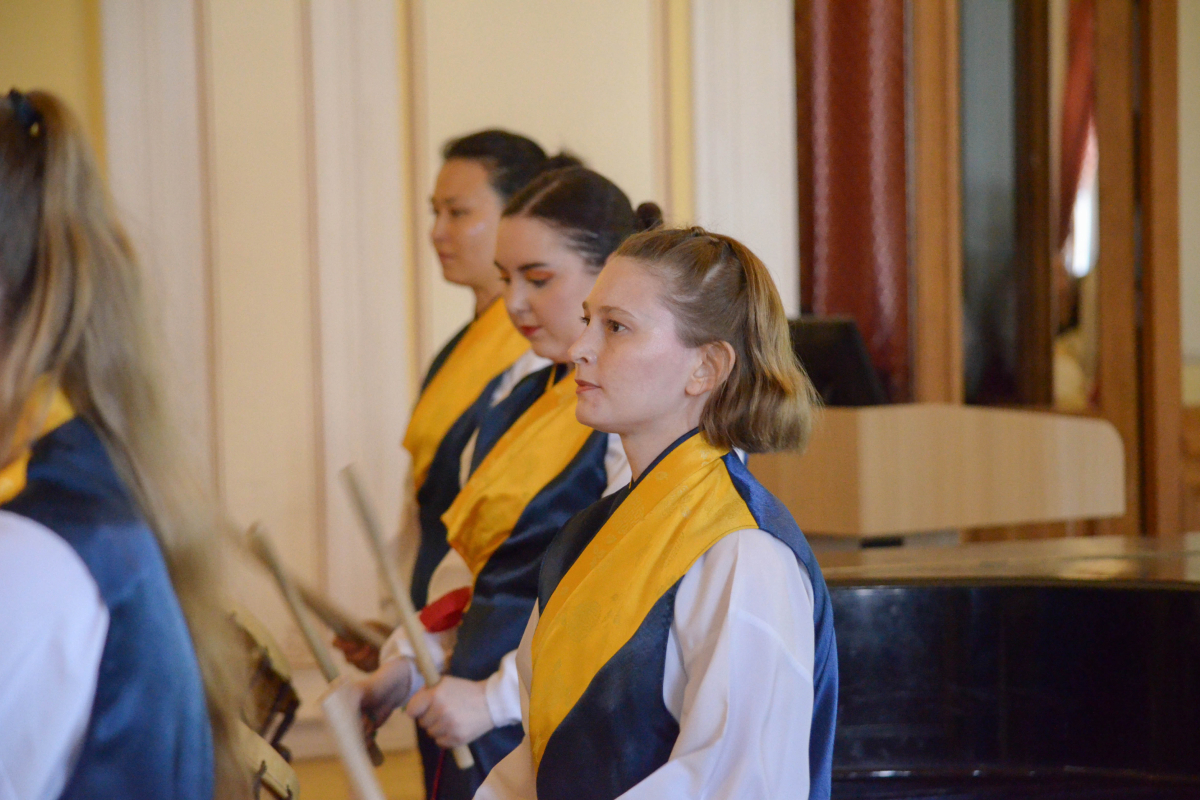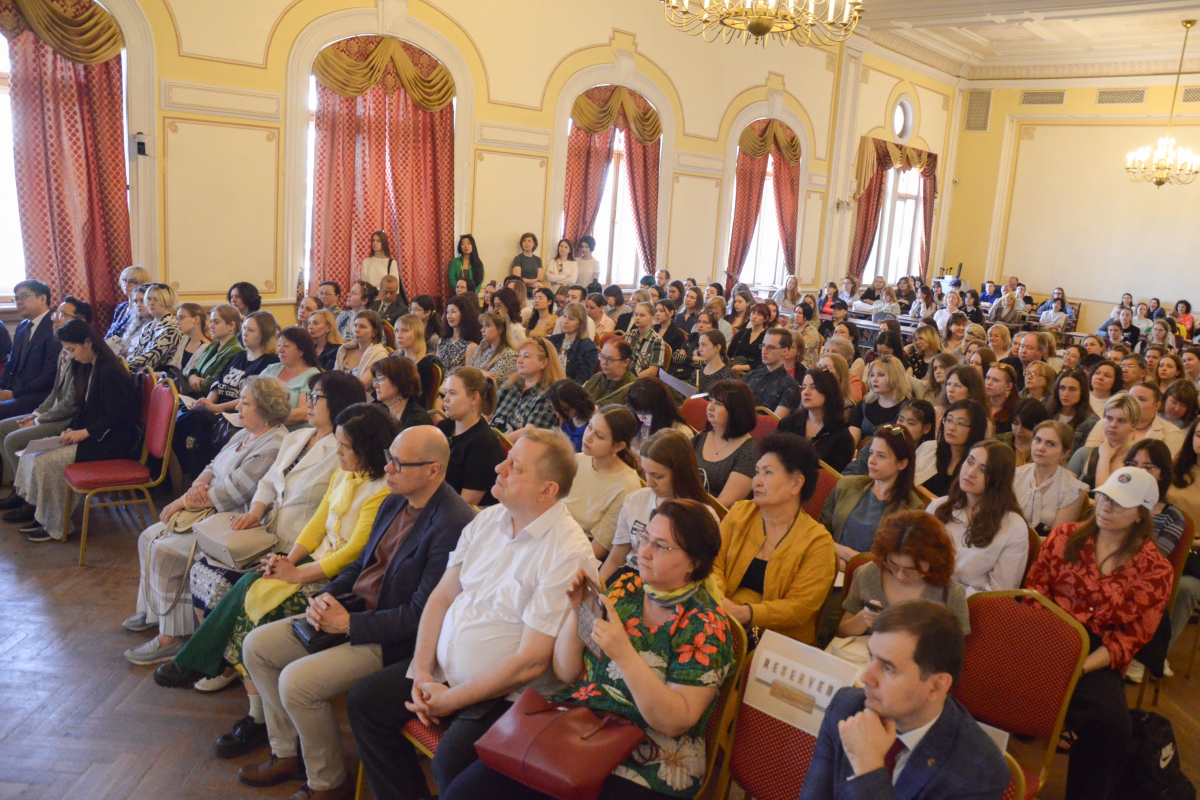"Spring is coming" – make way for spring!’: St Petersburg University hosts the festival "Korean Spring in St Petersburg"
For the second year in a row, St Petersburg University has hosted the Korean Spring Festival, which brings together experts in Korean culture and all lovers of Korea, its traditions and art. This year, lectures, workshops and traditional games were held at various locations around the University, including the Assembly Hall and the Atrium at 6 Birzhevaya Line, and the Botanical Garden.
Professor Alexey Rodionov, Senior Deputy Dean of the Faculty of Asian and African Studies at St Petersburg University, addressed the festival participants with a welcoming speech. "The popularity of Korean culture in its various manifestations — literature, cinema, music, and dance — characterises South Korea as a modern country with established traditions and talented people," said Professor Rodionov. "This festival once again underlines the friendly relations between our countries and helps us to get closer to each other."
In his speech, Byun Chul Hwan, Consul General of the Republic of Korea in St Petersburg, stressed the importance of holding the festival at the University. "The connection between Russia and Korea began at St Petersburg University in 1897 when its academics were the first in Europe to deliver lectures on the Korean language. From that day until today, our ties have only grown stronger," he noted.
Just as spring has come to St Petersburg, I hope that relations between our two countries will soon warm up. And the festival "Korean Spring in St Petersburg" will promote cultural exchanges between Korea and Russia and make it possible for more people to get to know Russia better.
Byun Chul Hwan, Consul General of the Republic of Korea in St Petersburg
The cultural programme of the event included three musical performances by the Hanuri creative team: Buk Chum — a traditional Korean dance performed to the rhythms of the buk drums; Youngnam Karak — a music piece in the Korean genre of Samul nori; and Nanta — a number based on the show of the Korean cooking team Nanta, in which the participants cut food and create intricate energetic rhythms by banging their knives against the boards.
The programme also included performances by students from Petrozavodsk State Conservatory. Pianist Lee Sojong and opera singer (baritone) Shim Junbom performed nine traditional Korean compositions, including the national anthem of the Republic of Korea.
The festival was organised by the Korea-Russia Dialogue Forum and co-hosted by St Petersburg University and the Consulate General of the Republic of Korea in St Petersburg. The partners were the Russian representative office of the Korean Marine Equipment Association (KOMEA), the BabJib chain of South Korean restaurants, and the Nan Korean Cultural and Educational Centre.
The presentations were followed by lectures on the study of Korean culture. The first speaker was Inna Tsoy, Associate Professor in the Department of Korean Studies at St Petersburg University. She talked about Korean publications translated into Russian. "If you want to get acquainted with Korean culture, you should start by studying national literature. Korean fiction in Russia — traditional and modern — is a joint effort of Russian Korean studies scholars and translators of the past and present generations," Inna Tsoy noted.
Inna Tsoy, Associate Professor of St Petersburg University, recommended to get acquainted with the classic works of our University scholars: the collection of "Korean Classical Poetry" by Professor Aleksandr Kholodovich (1906-1977); the publication "History of Korean Traditional Literature (up to the 20th century)" by Adelaide Trotsevich, a graduate of St Petersburg University, a Korean studies scholar; the collections of "Bulletin of the Centre of Korean Language and Culture at St Petersburg University"; and a special issue of the St Petersburg University magazine dedicated to bilateral relations between Russia and the Republic of Korea. Inna Tsoy spoke separately about the works of Korean writer Park Kyongni, the author of an amazing saga about the history of Korea. In 2018, a monument in her honour was unveiled at St Petersburg University as a symbol of the reunification of the two Koreas and the friendship of peoples.
Namyoung Kang, Head of the Russian office of the Korea Marine Equipment Association (KOMEA), once again took part in the festival. If last year his talk was about business, this time he decided to reflect on what happiness is. "Self-love is the true path to happiness," Mr Kang concluded.
Hosin Song, Director of the BabJib chain of South Korean restaurants, focused his talk on Korean cuisine. "For Koreans, food is a source of love and strength. They always eat a lot and have a varied diet. In addition to rice, soup and kimchi, they also serve panchan (starters): vegetables, seafood, and seaweed. When mothers in the Joseon Dynasty fed their children, they would tap their stomachs with their hands to see if they were full or not," Mr Song explained.
Various workshops were held as part of the festival. They were dedicated to making pictures with Hanji painting paper and canvases with Hangul (inscriptions in Korean). The participants could also feel like the heroes of the TV series Squid Game and take part in traditional Korean games: tug-of-war; the game of glass balls; ’Hibiscus Flower Blossoms’; an analogue of the Russian game "Sea Waves Once"; and "Sugarcomb", where the participants have to extract the figure engraved on a sweet without breaking it.


